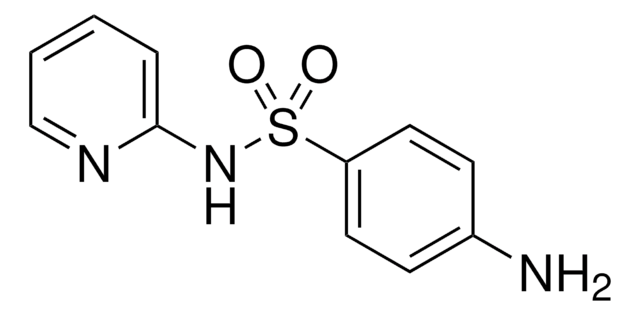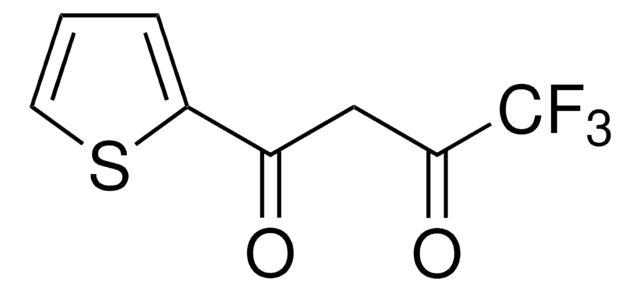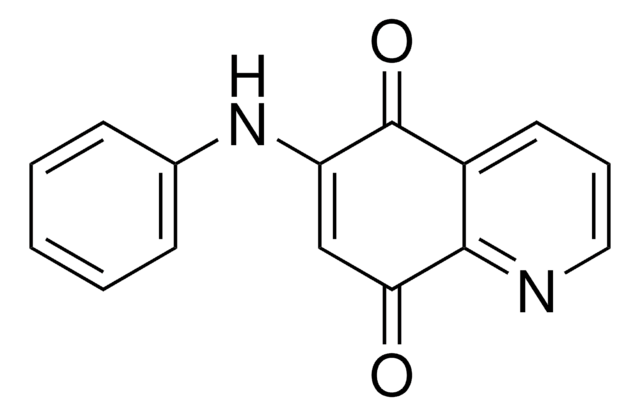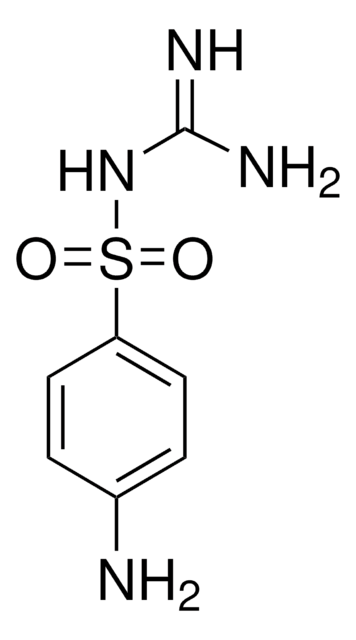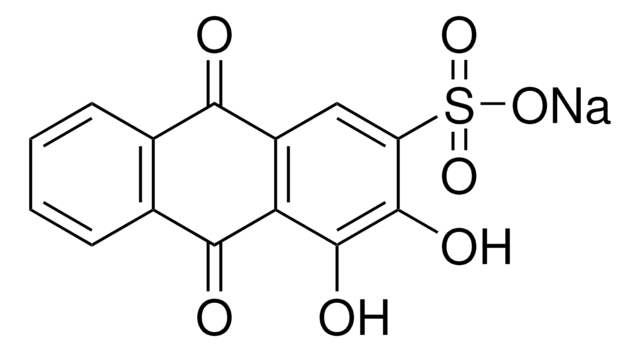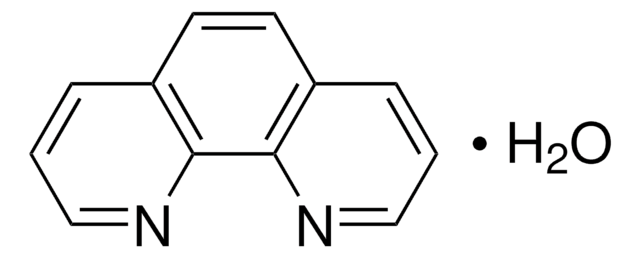S0383
Sulfameter
Synonym(s):
5-Methoxysulfadiazine, N1-(5-Methoxypyrimidin-2-yl)sulfanilamide, Sulfamethoxydiazine
About This Item
Recommended Products
form
powder
Quality Level
storage condition
(Keep container tightly closed in a dry and well-ventilated place. Light sensitive.)
color
white to faint yellow
antibiotic activity spectrum
Gram-negative bacteria
Gram-positive bacteria
mycobacteria
parasites
Mode of action
enzyme | inhibits
storage temp.
2-8°C
SMILES string
COc1cnc(NS(=O)(=O)c2ccc(N)cc2)nc1
InChI
1S/C11H12N4O3S/c1-18-9-6-13-11(14-7-9)15-19(16,17)10-4-2-8(12)3-5-10/h2-7H,12H2,1H3,(H,13,14,15)
InChI key
GPTONYMQFTZPKC-UHFFFAOYSA-N
Looking for similar products? Visit Product Comparison Guide
General description
Application
Biochem/physiol Actions
Other Notes
Signal Word
Warning
Hazard Statements
Precautionary Statements
Hazard Classifications
Eye Irrit. 2 - Skin Irrit. 2 - STOT SE 3
Target Organs
Respiratory system
Storage Class Code
11 - Combustible Solids
WGK
WGK 2
Flash Point(F)
Not applicable
Flash Point(C)
Not applicable
Personal Protective Equipment
Choose from one of the most recent versions:
Certificates of Analysis (COA)
Don't see the Right Version?
If you require a particular version, you can look up a specific certificate by the Lot or Batch number.
Already Own This Product?
Find documentation for the products that you have recently purchased in the Document Library.
Our team of scientists has experience in all areas of research including Life Science, Material Science, Chemical Synthesis, Chromatography, Analytical and many others.
Contact Technical Service
